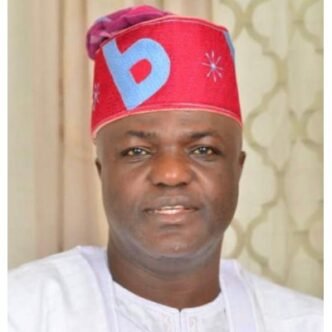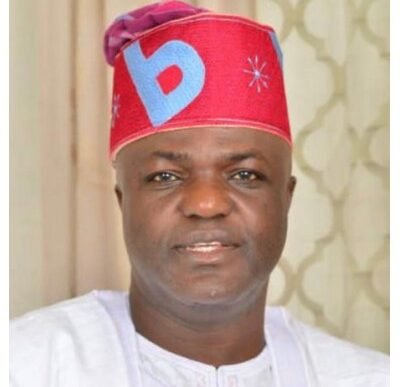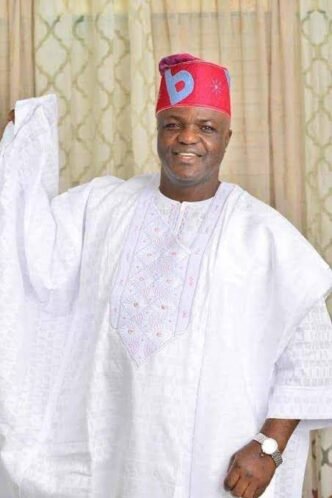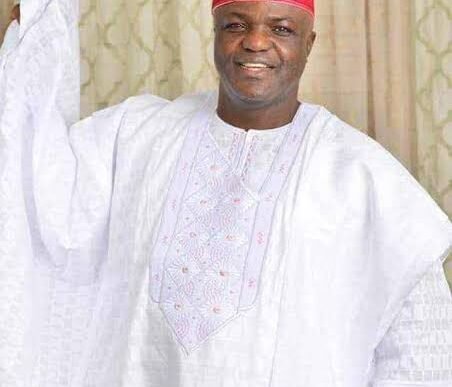HB. 1729 A BILL AN ACT TO ALTER THE CONSTITUTION OF THE FEDERAL REPUBLIC OF NIGERIA, 1999 TO PROVIDE FOR APPOINTMENT OF CHAIRMAN OF THE STATE JUDICIARY SERVICE COMMISSION FROM AMONG THE RETIRED CHIEF JUDGES OF THE STATE, GRAND KHADIS OF SHARIA COURT OF APPEAL, AND JUDGES PRESIDENTS OF THE CUSTOMARY COURT OF APPEAL AND JUDGES OF THE STATE HIGH COURT; TO BRING THE PROCEDURE FOR SUCH APPOINTMENT TO BE IN CONFORMITY WITH THE GLOBAL BEST PRACTICES; TO CURB DUPLICATION OF DUTIES AND OVER-CONCENTRATION OF POWERS IN THE OFFICE OF THE CHIEF JUDGES OF A STATE AND FOR RELATED MATTERS. Bill Progress: Committee Stage
This Bill seeks to alter the 3rd Schedule of the Constitution to ensure that the Chief Judge is no longer the Chairman of the State Judicial Service Commission, but rather a Chairman will be selected from among retired Chief Judges of the State, Grand Khadis of Sharia Court of Appeal, Presidents of the Customary Court of Appeal and Judges of the State High Court. The idea is to curb duplication of duties and over-concentration of powers in the office of the Chief Judges of a State.
The recent introduction of HB 1729, a proposed bill aimed at amending the 1999 Constitution of the Federal Republic of Nigeria, has sparked significant discussions regarding the structure of the State Judicial Service Commission. The bill seeks to modify the existing procedure for appointing the Chairman of this vital body, currently held by the Chief Judge of the State.
Under the new proposal, the bill expands the eligibility criteria for the position of Chairman to include several distinguished judicial figures, such as retired Chief Judges of the State, Grand Khadis of the Sharia Court of Appeal, Judges Presidents of the Customary Court of Appeal, and Judges of the State High Court. This legislative shift aims to reshape the landscape of the judiciary in the state, offering a broader selection of candidates and potentially enhancing the effectiveness of the judicial system.
One of the key objectives of this bill is to align Nigeria’s appointment process for judicial leadership with global best practices. The current paradigm, wherein the Chief Judge presides over the commission, has been criticized for lacking diversity in leadership and limiting the pool of candidates. By broadening eligibility, the bill introduces an element of inclusivity that reflects international standards on judicial appointments, moving towards a more contemporary approach to governance within the judicial sphere.
Moreover, HB 1729 seeks to address several practical challenges associated with the existing structure. One significant concern is the duplication of duties imposed on the Chief Judge. By assigning this critical role to someone with extensive judicial experience outside the Chief Judge’s position, the bill promotes a more efficient distribution of responsibilities within the judiciary. This reorganization can potentially streamline processes and reduce the burden on individual officeholders, ultimately leading to a more effective judicial system.
Another vital area of concern that the bill intends to tackle is the over-concentration of powers within the hands of the Chief Judges. The existing system allows for an accumulation of responsibilities that can hinder the impartial functioning of the judiciary. By decentralizing authority among different qualified individuals, HB 1729 not only curbs excessive power but also enhances the principles of checks and balances within the state judiciary. This move could foster a more robust and transparent judicial system where leadership is characterized by collective expertise rather than singular authority.
The potential benefits of introducing diverse leadership into the State Judicial Service Commission cannot be understated. Individuals who have served as Judges in various capacities possess a wealth of experience and unique perspectives that can enrich discussions and decision-making processes. Retired Chief Judges, Grand Khadis, and Judges Presidents bring their track records of judicial service to the table, which can positively influence the judicial appointment processes within the state.
In areas where the judiciary faces public scrutiny and demands for reform, enhancing the caliber and diversity of its leadership can be a game-changer. A Judiciary that draws on varied experiences is more equipped to address the complexities of legal issues facing society. The ability to accommodate diverse voices is crucial, especially in a nation like Nigeria, characterized by its multifaceted societal dynamics.
Moreover, the proposed changes can be perceived as an essential step towards reinforcing public trust in the judicial system. By enacting HB 1729, there is a clear message sent to the populace that the judicial body is committed to reform and improvement. Increased transparency in appointment processes is vital for fostering confidence among citizens, who often view judicial appointments as critical indicators of a fair and impartial legal system.
However, as with any legislative proposal, the struggle to enact such a change will likely face various challenges, including political pushback, concerns regarding the competence of a broader candidate pool, and resistance to modifying long-standing traditions within the state judiciary. Achieving consensus among stakeholders will be vital in ensuring that the bill passes into law.
In conclusion, HB 1729 represents a significant opportunity for Nigeria’s judiciary to enhance its structure and operations profoundly. By expanding the pool of candidates eligible for the Chairmanship of the State Judicial Service Commission, this bill aims to align the country’s judiciary with recognized global standards, curtail the over-concentration of powers, and foster a diverse leadership approach that reflects the judiciary’s multifaceted role in society. If successful, this legislative proposal can usher in a new era for the judicial system, characterized by collaborative governance, enhanced efficiency, and increased public confidence. The dialogue around this bill signifies an ongoing commitment to reform, reflecting an understanding of the necessity for the judiciary to evolve in response to a rapidly changing world.











